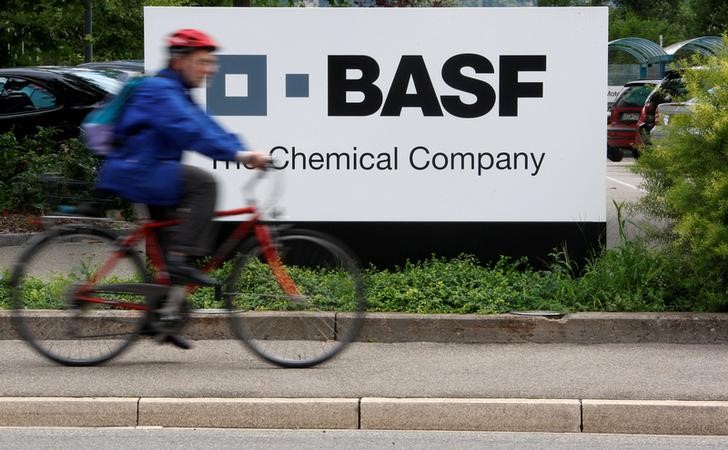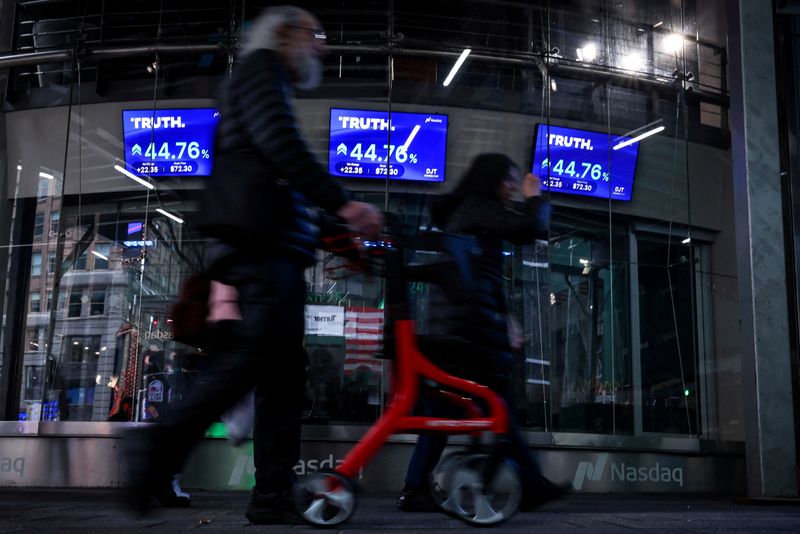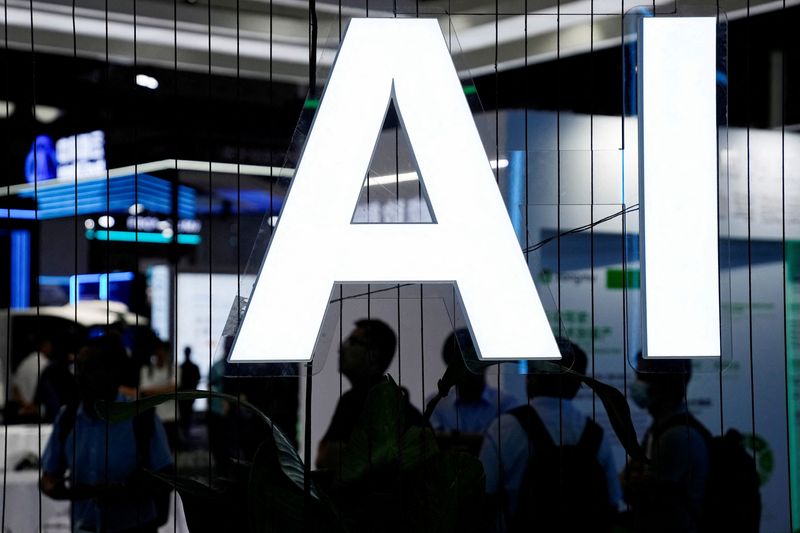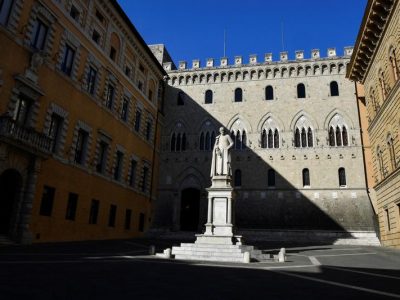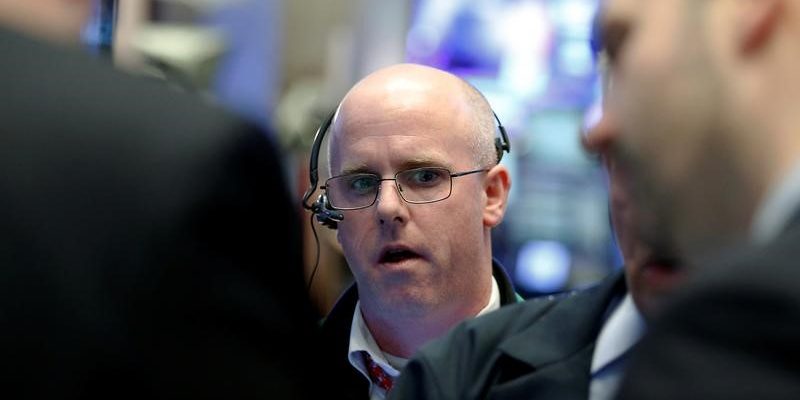
Compañía de Minas Buenaventura SAA (NYSE: BVN) has demonstrated a strong performance in the third quarter of 2024, according to the earnings call held on October 30, 2024. CEO Leandro Garcia, alongside other executives, reported a substantial increase in EBITDA and net income, a significant surge in silver production, and strategic advancements in key projects.
The company’s operational improvements and effective liquidity management have led to an upgrade in its credit rating by Moody’s (NYSE:MCO) to B1. Buenaventura’s strategic growth has been marked by asset sales, including the Chaupiloma Royalty Company, and progress in the San Gabriel and El Brocal projects.
Key Takeaways
EBITDA rose to $132 million with a 40% margin.
Net income reached $237 million, contrasting with a loss in the same quarter of the previous year.
Silver production increased to 4.4 million ounces; gold production rose by 7%.
The sale of Chaupiloma Royalty Company contributed to improved cash flow with a $210 million inflow.
San Gabriel project is 65% complete with $77 million in CapEx.
Moody’s upgraded the company’s credit rating to B1.
Cash position is strong at $458 million, with a net debt-to-EBITDA ratio of 0.5x.
Company Outlook
El Brocal is targeting an average throughput of 12,500 tonnes per day by early 2025.
San Gabriel project expected to generate $100 million in EBITDA annually.
Anticipated cash position of $370 million starting 2025.
Projected dividends from Cerro Verde at $150 million.
Trapiche feasibility study ongoing with environmental impact assessment approval expected in six months.
Bearish Highlights
Copper production decreased by 9% year-over-year.
Cash costs for San Gabriel increased to $1,300 per ounce, up 60% from the original plan.
Elevated costs at Julcani lead to the evaluation of future operations.
Bullish Highlights
Strong silver and gold production performance.
Strategic asset sales bolstering financial position.
Credit rating upgrade reflecting operational and financial improvements.
Misses
Higher cash costs at San Gabriel due to changes in mining methods and conditions.
Increased labor costs expected to rise by 2.4% to 2.5% in 2025.
Q&A Highlights
Discussion on the company’s workforce composition, with 30% being employees and contractors.
Confirmation of financial allocations from recent asset sales to fund San Gabriel and the Trapiche study.
Announcement of the Annual Investor Day scheduled for December 10 in New York.
Buenaventura’s Q3 2024 earnings call has painted a picture of a company on the mend, with a strong recovery in profitability and strategic project development. The sale of non-core assets and the progress of the San Gabriel project are key factors in the company’s optimistic outlook.
However, the company faces challenges with increased operational costs and the necessity for permit approvals for continued production at certain sites. As Buenaventura continues to navigate the dynamic mining industry, stakeholders are looking forward to the updates that will be provided at the upcoming Annual Investor Day in New York.
InvestingPro Insights
Compañía de Minas Buenaventura SAA’s strong performance in Q3 2024 is further supported by recent InvestingPro data and tips. The company’s market capitalization stands at $3.32 billion, reflecting its significant presence in the mining sector.
One of the most notable InvestingPro Tips highlights that Buenaventura has impressive gross profit margins. This aligns well with the reported EBITDA margin of 40% in Q3 2024, underscoring the company’s operational efficiency. The gross profit margin for the last twelve months as of Q2 2024 was 46.8%, demonstrating consistent profitability.
Another relevant InvestingPro Tip indicates that Buenaventura operates with a moderate level of debt. This is consistent with the company’s reported strong cash position of $458 million and a low net debt-to-EBITDA ratio of 0.5x, which contributed to the recent credit rating upgrade by Moody’s.
The company’s revenue growth is also noteworthy, with a 23.54% increase over the last twelve months as of Q2 2024, reaching $989 million. This growth trend supports the positive outlook presented in the earnings call, particularly regarding future projects like San Gabriel and El Brocal.
It’s worth noting that InvestingPro lists 7 additional tips for Buenaventura, offering investors a more comprehensive analysis of the company’s financial health and market position. These additional insights can be valuable for those looking to deepen their understanding of Buenaventura’s investment potential.
Full transcript – Compania de Minas Buenaventura SAA ADR (NYSE:BVN) Q3 2024:
Operator: Good day, ladies and gentlemen. Welcome to the Compañía de Minas Buenaventura Third Quarter 2024 Earnings Results Conference Call. At this time, all participants are in a listen-only mode and please note that this call is being recorded. I would now like to introduce your host for today’s call, Mr. Gabriel Salas, Investor Relations Officer. Mr. Salas, you may begin.
Gabriel Salas: Good morning, everyone, and thank you for joining us today to discuss our third quarter 2024 results. Today’s discussion will be led by Mr. Leandro Garcia, Chief Executive Officer. Also joining our call today and available for your questions are Mr. Daniel Dominguez, Chief Financial Officer; Mr. Juan Carlos Ortiz, Vice President of Operations; Mr. Aldo Massa, Vice President of Business Development and Commercial; Mr. Alejandro Hermoza, Vice President of Sustainability; Mr. Renzo Macher, Vice President of Projects; Mr. Juan Carlos Salazar, Vice President of Geology and Explorations; Mr. Roque Benavides, Chairman; and Mr. Raul Benavides, Director. Before I hand our call over, let me first touch on a few items. On Buenaventura’s website, you will find our press release that was posted yesterday after the market closed. Please note that today’s remarks include forward-looking statements that are based on management’s current views and assumptions. While management believes that its assumptions, expectations and projections are reasonable in view of the currently available information, you are cautioned not to place undue reliance on these forward-looking statements. I encourage you to read the full disclosure concerning forward-looking statements within the earnings results press release issued on October 30, 2024. Let me now turn the call to Mr. Leandro Garcia.
Leandro Garcia: Thank you, Gabriel. Good morning to all and thank you for joining us today to discuss the quarterly results of Compañía de Minas Buenaventura. On Slide 2, this is our cautionary statement, important information that I encourage you to read. Today, we will be discussing our performance for the third quarter of 2024, highlighting key achievements and strategies moving forward. After the presentation, we will be available for our question-and-answer session, where our team will be happy to answer your questions. The next slide, please. This is a slide I would like to highlight a few key areas that contributed to our strong third quarter 2024 results. Our EBITDA from direct operations for the third quarter has increased to $132 million compared to the previous year, primarily driven by strong results from Yumpag and El Brocal. This performance is also reflected in a higher EBITDA margin of 40%, compared to 25% in the previous year. Third quarter 2024 net income, including the sale of Chaupiloma Royalty Company reached $237 million, compared to $28 million net loss for the same period in 2023. Copper production decreased 9% year-over-year in third quarter 2023, copper production El Brocal has increased due to higher estimated copper content mine from the open pit transactional ore. In the third quarter of 2024, silver production reached 4.4 million ounces, a significant increase compared to the 1.9 million ounces produced during the same period last year. Of this total 3.2 million ounces came from Uchucchacua and Yumpag. Gold production increased 7% year-over-year, mainly explained due to increased output at Julcani and La Zanja. We are pleased to share that Buenaventura completed the sale of its Chaupiloma Royalty Company to Franco-Nevada for $210 million during third quarter 2024. Buenaventura’s CapEx is in third quarter 2024, totaled $98 million, which includes $77 million allocated to the San Gabriel project, primarily allocated to the mine’s water dam and to power line construction. Buenaventura’s credit rating was upgraded by Moody’s to B1 with a positive outlook. Moody’s cited Buenaventura’s operational improvement driven by increased production from its El Brocal, Yumpag and Uchucchacua mines as well as efficiency in cost reduction, cash flow generation and conservative liquidity management as key factor. Our cash position reached $458 million with a total debt of $675 million. We continue deleveraging the company reaching a net debt-to-EBITDA ratio of 0.5x, lowest in years and within our targeted range. Moving on to our cost structure in Slide 4, the third quarter 2024 all-in sustaining costs have been reduced by 69% year-over-year. This reduction is primarily attributed to the increased silver contribution from Uchucchacua and Yumpag. Moving on to cost applicable to sales trend, as you can see, copper CAS decreased in the quarter, mainly due to an increase in volume processed during the quarter, resulting from a stockpile ore process, the CAS in line with the third quarter 2023 figure. Silver CAS has decreased year-over-year, primarily driven by the higher contribution of silver ounces from Uchucchacua and Yumpag. However, it has increased quarter-over-quarter due to higher exploration expenses and increased cost at Uchucchacua and Yumpag related to ground support works. Gold CAS has increased year-over-year, primarily driven by lower grades at Tambomayo and Orcopampa. On the next slide, we will present our free cash flow generation. The third quarter 2024 cash position increased during the quarter, driven mainly by the strong performance of El Brocal, Uchucchacua and Yumpag. The sale of Chaupiloma for 220 and dividends received from [indiscernible]. In addition to these drivers, the EBITDA to cash through the free cash flow reconciliation reflects Buenaventura current growth phase with significant CapEx investment related to San Gabriel. Moving on to the Slide 6. This slide shows the San Gabriel project, cumulative progress, reaching 65% overall completion by the third quarter 2024 primarily driven the advancements in the water dam and the power line construction. A key milestone, we are closely monitoring for the next quarter is the completion of the pipeline works. Out of the $650 million total CapEx, we have already executed $250 million and committed close to $230 million, allowing us to de-risk the project completion at and any cost increase. 100% of the structural steel is now on site, a major contract for plant and infrastructure have been awarded. On the next slide, we are showing the processing plant progress that will operate 3,000 tonnes per day. Currently, the SAG and Ball (NYSE:BALL)’s mechanical works are at 60%. The Primary Crusher mechanical works at 90%. And finally, the CIL tank’s mechanical works are at 65%. Moving on to Slide 8, we present the progress at various facilities, essential for the underground mine development, including the North Ramp portal, fans installations, and the shotcrete plant. Moving to Slide 9, we are showing the progress at various infrastructure of the project. You can say the filtered tailing plant, the water dam, the power line and the campsite 100% completed. Finally, to our closing remarks, I would like to finish with the presentation with these comments. First, Uchucchacua exceeded expectations, reaching an average throughput of 1,500 tonnes per day earlier than expected, while Yumpag maintained a steady production at 1,000 tonnes per day, delivering 3.2 million ounces of silver in the third quarter. Second, at El Brocal, we successfully processed 100% of the stockpile ore enabled us to meet our production targets for the first nine months 2024. The underground mine reached a record average throughput of approximately 12,000 tonnes per day during the quarter. Third, the San Gabriel project achieved a 65% overall progress, meeting our planned targets. Buenaventura continues de-risking the project by creating engineering and procurement. And lastly, I am pleased to report a record low leverage ratio of 0.5x for the quarter, driven by a strong EBITDA growth, the sale of non-core assets, and effective debt management. Thank you for your attention, and I will hand the call back to the operator to open the line for questions. Operator, please go ahead.
Operator: We’ll now begin the question-and-answer session. [Operator Instructions]. The first question is from Cesar Perez-Novoa from BTG Pactual. Please go ahead.
Cesar Perez-Novoa: Thank you. Good morning, everyone, and congratulations for your third quarter, really outstanding results and a lot of progress. If I may have three questions. The first one relates to El Brocal. I believe the company is on track to achieve average mining rates of around 11,000 metric tonnes in 2024. However, during the third quarter, copper production fell around 10%, even though your average rates for the quarter stood at 12,000 metric tonnes per day. Can you please comment on why the volume fell and when will El Brocal reach the targeted rates of 12,500 per day, if I recall correctly. My second question relates to San Gabriel, Alejandro mentioned completion is already at 68%. Could you please comment on project economics now that you have fully revised CapEx? And in addition, any new update on Trapiche would be also greatly appreciated. And finally, if I may again, if you could indicate where your sources of inflows and outflows of cash will be in the next year including your dividends from Cerro Verde. I asked a lot of questions, but thank you very much for taking them.
Leandro Garcia: Thank you, Cesar, of course. Regarding El Brocal, we already reached the objective to reach 12,000 tonnes per day. This objective was planned to be reached on December this year, but we reached it before. Maybe Juan Carlos, hope you can give more explanation to the production of copper, please?
Juan Carlos Ortiz: Thank you, Leandro. And thank you, Cesar, for the question. Yes, we reached 12,000 tonnes per day average rate production in the mine. We are planning to keep ramping up this rate up to 12,500 tonnes per day, probably by the first or second quarter of 2025. So we are on track to reach full capacity of the level mine as we plan it. The difference between third quarter of 2023 and third quarter 2024 in copper production at 10% lower production compared between quarters because in the last year, we have production, an exceptional production of the shipping ore from the open pit. We have like 12,000 tonnes spread from the open pit crush it and sell it directly to the market with an average of 20% copper. So you have almost 1,400 tonnes of fine coppers as a spot sale on 2023. That’s the main difference between the third quarter of 2023 when we have this spot production and third quarter 2024 when — where 100% of the production — copper production came from the underground mine that the main difference of our copper production we did.
Leandro Garcia: And continuing with the second question, you were asking about the economics of San Gabriel. San Gabriel, we are planning to have an EBITDA around $100 million per year, our cash cost should be around 1,300 and with a sustaining CapEx yearly about between $5 million and $7 million. And more important, the production will be around 130,000 ounces per year. And in terms of inflow and cash flow, Daniel, please, can you give more color to the question?
Daniel Dominguez: Yes, of course. Thank you, Cesar, for the question. For 2025, we expect to start the year with a cash position of around $370 million, and considering the prices for gold of $2,100 for silver, $27, and for copper, $9,000 per tonne. We estimate an EBITDA for the following year of around to $350 million to $380 million. In addition to this, we expect to receive $150 million of dividends from Cerro Verde. This is regarding the inflows. And regarding the outflows, we expect to spend at San Gabriel close to $240 million to $250 million, plus our sustaining CapEx, which is in the order of $100 million to $120 million. And finally, we are going to pay the taxes for the Chaupiloma sale, which we received $210 million this year. But we are going to pay the corporate tax of 29.5%, which is $45 million and will be paid in the first quarter of next year.
Cesar Perez-Novoa: All right. Very good. Thank you very much for the detailed explanation. Thank you, all.
Leandro Garcia: No, Cesar, I left for the end your question about Trapiche, any news about Trapiche. We continue with the feasibility study. And Renzo, please, if you can give more information to that.
Renzo Macher: Sure. So exactly we’re in the middle of the feasibility study, we are starting to receive the test results from our second set of column testing on-site, confirming the business case. We keep working to consolidate the write-off pass for the power line. We are probably 60% advance in that one. And in the environmental impact assessment process, we finished the public assemblies. Those are great news. We are in the process of solving the authority question. So hopefully, within the next six months which will have an environmental impact assessment approval.
Cesar Perez-Novoa: Okay, very clear. Thank you very much.
Operator: Next question is from Carlos De Alba with Morgan Stanley. Please go ahead. Carlos, your line is open on our end, perhaps you have it muted on your end.
Carlos De Alba: Yes. Thanks. Good morning. Sorry about that. So I have several questions. The first one is on San Gabriel, just continuing the discussion there. Any expectations, any guidance on how do you see the mine ramping up to full normalized production run rate of 130,000 ounces per year. It seems that the first ore is in the second quarter of next year. And so how do you see the ramp-up?
Leandro Garcia: Thank you, Carlos. Well, Renzo, Juan Carlos, please. Renzo?
Renzo Macher: Yes. So the start-up plan, we’re expecting to reach 65% of our production capacity by the third quarter of 2025 with commissioning activities on the mill and crusher starting in first quarter next year. And then we’re going to start the ramp-up process up to 3,000. I don’t know if Juan Carlos can — you can comment on that part.
Juan Carlos Ortiz: Sure. We have right now the contract ready in the tunnels underground. We have two crews, two feet, working for the North and the South ramp at the same pace. We are reaching an average development rate of about 500 to 600 meters per month. We are getting into the ore body right now. So we will have were scheduled to have access to the pilot pit — initial pilot pit by December this year in order to start training our people on the mining method that whether using San Gabriel and continue with this training along the first half of 2025. We have been reaching — we’re close to the decision to purchase all the mining equipment. That’s for the mining operation. We have good delivery time. So for rented equipment and new equipment according to the plan that we have for ramping up the whole production. So we are well on track for the mine development side, along as resolution mentioned, with the construction and commissioning of the processing plan.
Carlos De Alba: Thank you. Just to clarify, the 65% of capacity by the third quarter of 2025. Is that throughput? Or is this your final production?
Juan Carlos Ortiz: No, no, no. That’s the — is 65%, 6-5 percent, which was 2,000 tonnes per day. That’s we’re going to — that’s when the project will end with a constant production of 2,000 tonnes per day for three weeks without major response and with a commercial product at the end. That’s kind of it. That’s kind of where we finish a project and we start operation.
Carlos De Alba: All right. Got it. Okay. Then the next question on Cerro Verde. Any expectations for dividends in the fourth quarter?
Leandro Garcia: Well, you may see the financials Cerro Verde. And there is some cash that we expect to — maybe we will discuss it in the next Board meeting.
Carlos De Alba: How much will it be your expectations?
Leandro Garcia: We expect an additional $50 million or $60 million for us for Buenaventura.
Carlos De Alba: $50 million to $60 million for Buenaventura in the fourth quarter, potentially?
Leandro Garcia: Potentially, yes.
Carlos De Alba: Yes. All right. Great. And then on a couple of operations, what can we expect on Coimolache profitability in the coming quarters given that in spite the good prices in a struggle in the third quarter?
Leandro Garcia: Well, the current situation, we are expecting a permit —
Carlos De Alba: Coimolache?
Leandro Garcia: Yes, Coimolache, we are expecting a permit for continued our operations. Once we have the permit, the production will come as we were used to around 70,000 ounces per year, we expect to put more mineral ore in the leach pad that has been constructed and we are expecting that permit. We will begin production in the third quarter of — between the third quarter and the fourth quarter and the next year, maybe more detail Juan Carlos can give us.
Juan Carlos Ortiz: Thank you, Leandro. Yes, the trailing profitability were for this quarter and maybe the coming quarters close to a breaking situation in Coimolache, we are extracting goals from the inventories that we hold on the past. As Leandro mentioned, we already have the environmental license to do the expansion of the pads, we will hold the land. We are currently filing for the construction permit. So to have the construction permit ready by the end of the year and related to 2025. And there are some other detail on the permits, but on that sequence of ideas, we will have the chance to start putting fresh ore on top of the pad by the third quarter of 2025. So the idea is that we hold the situation kind of close to breakeven — cash breakeven, and we reached the permit for construction, permits for placing fresh ore on top of the pad by the third quarter of 2025. And at that time, we will resume profitability as we had in the past.
Carlos De Alba: But so basically, you’re going to resume leaching in the third quarter, probably you only see production until the fourth quarter 2025 or first quarter 2026 or increase in…
Juan Carlos Ortiz: Yes, it will be ramping up, as you know, they — we used to have place in the ore and you have a leaching period, total leaching period of total loss 60 days. So usually, you need to start waiting that third quarter of next year will be a pivotal moment for Coimolache back in profitability because there will be some gold ounce coming from the past, the existing inventory that we have, and we are taking it out right now, plus the addition of fresh ore in the third quarter. So it will be a combination of both of them. So probably the fresh ore will add a lot of fuel for the profitability of Coimolache by the third quarter.
Carlos De Alba: All right. Excellent. And then lastly, sorry for all these questions, but to get them out of the way, on Julcani, what is the rationale to sustain — to keep this operation in Buenaventura’s portfolio given elevated costs?
Leandro Garcia: Yes. Well, we are trying to make more efficient with Julcani. We have to make some — to take some decisions there, but we are moving from the — to the copper and gold areas that give us more production of gold in order to be more efficient with that mine. As I told you, Carlos, we are evaluating the situation and the continuity of that mine in our portfolio.
Operator: [Operator Instructions]. The next question is from Tanya Jakusconek with Scotiabank. Please go ahead.
Tanya Jakusconek: Great. Good morning or good afternoon, everybody. Thank you so much for taking my questions. Sorry, I just got a bit late. It was another call ahead of you. Just wanted to come back to San Gabriel, can I just ask, I think I heard an EBITDA of $110 million. Was that assigned San Gabriel EBITDA?
Leandro Garcia: Yes, between $9 million and $110 million. Yes. $90 million — between $90 million and $110 million, yes.
Tanya Jakusconek: Okay. And sorry, what gold price was that based on?
Leandro Garcia: $2,000.
Tanya Jakusconek: $2,000. Okay. All right. Thank you so much for that. Can I just ask — I heard you mention the total cash costs went to $1,300. And I think originally, the feasibility study or your plan was $800. So that’s like a 60% increase. Can someone explain to me what has happened to these total cash costs? It’s not just inflation. Has something changed in the mine plan?
Leandro Garcia: Yes, yes. The mining metal has been changed. Juan Carlos, I don’t know if you can give more information to Tanya.
Juan Carlos Ortiz: Yes, sure, Leandro. Well, if we split the operation of San Gabriel into the mine, the processing plant and the overhead expenses, pretty much the processing plant and the overhead pretty much aligned with the pre-feasibility study, feasibility studies, operating costs. The main difference is on the underground mine. Right now that we get our hands on the mine, as I mentioned before, we are running tunnels and assessing the quality of the rock and what is the safe way to proceed to mine the deposit. The quality of the rock is very good. We require a lot of reinforcement and we need to change the volume of ore that we retracted with underhand mining methods compared to the original study. So in a combination of more expensive tunnels, to be given in this poor quality rock, more expensive openings to be made due to the quality of the rock, and a larger percentage of ore extracted by the underhand mining method is that instead of the overhand. So the underhand more expensive, we’re required to use more cemented back fee with 7% cement. So the combination of all these factors is the one that make a significant change on the operating cost of San Gabriel.
Tanya Jakusconek: So can I ask what is the operating cost per tonne, like of this operation? Like if you take the mining plus the milling plus the G&A processing. So what would it be? Is it like $200 a tonne? I don’t know anymore, $250?
Juan Carlos Ortiz: In the initial years, we’ll be in the order of $150 per tonne and then gradually while we start doing less of the expensive openings, the first cut that we need to make for underground, we will start coming down to $140, $135 per tonne. That’s a combination of processing overhead and the underground mine.
Tanya Jakusconek: Okay. And that’s U.S. dollars?
Juan Carlos Ortiz: U.S. dollars.
Tanya Jakusconek: Yes. Okay. And can I ask like when did you understand that the mining cost had to change? Was this a recent thing that you — once you started to put the decline in and you started to see the rock conditions or when did you kind of note that you have to change?
Juan Carlos Ortiz: Yes, I have been recently once we start driving the tunnels along the ore body in the last two quarters. We’re starting in May, a contractor driving tunnels on the ore body. So we have the chance to reassess the quality of the rock. We redo all the mechanics, the selection of the mining networks, and then we need to ramp the mining, planning or the mine plan. There was an opportunity we have reduced a lot of tunneling in the new design, almost in the $100 million of less expenses on tunneling to be made in the new arrangement that is offset by the larger expenses on cemented backfill. So it was in the last five months to six months that we have more thorough access today ore body or assessment, not by drill holes by with openings, galleries, which we know better in the quality of the rock, and we are on the conservative side of the equation. So we are now putting more shot grid reinforcement. And probably during the operation, we will test if that is necessarily or there are sale opportunities that we foresee right now to reduce expenses and do something more efficient in the coming months.
Tanya Jakusconek: And just on the sustaining capital, which you mentioned would be $5 million to $7 million. Most of the companies that we follow with underground mines and that sort of range would have like maybe $200 an ounce of sustaining capital, which brings it to $25 million a year. Can you explain to me why your sustaining capital is so low?
Juan Carlos Ortiz: Well, our decision of sustained capital is just to keep all the assets in good shape, keep maintaining all the equipment that we have. So we have experienced in Tambomayo, Orcopampa, some ore mature provision, we know pretty much what we need. So everything that we need for the construction and the spare parts any ancillary service is being taking down or taking considered inside the CapEx. So that’s the reason that in the coming years after completion of the project, we all expect to be in the range of less than $10 million sustaining CapEx as we see for maintenance of all the facilities. It’s a very compact footprint and it’s a brand-new operation. So we expect to be in that range based on our experience and the dynamics of the project itself.
Tanya Jakusconek: Okay. Maybe if I can leave San Gabriel and go to just talking about just your cost you go into 2025. Can someone just share with me, as you think about your budgeting of your costs? What sort of labor inflation are you forecasting or overall inflation for 2025 estimates over 2024?
Leandro Garcia: Yes, Tanya. During the COVID time, there was increase in the labor cost due to the cost of inflation, the inflation rate, we reached around 9%. But the last year, we expect to have — this year, we expect to have 2.4%, 2.5% of inflation. So in that range should be the increase in labor costs. We normally are at those levels with inflation.
Tanya Jakusconek: And what about other items within your cost structure? So when I think about your 2025 cost, should I just think that there are only 2.5% higher than 2024? Or are there other things within your cost structure that will move those costs more than 2.5%.
Leandro Garcia: So in our business, 60% of our cost, it comes from the contractors and the manpower, right?
Tanya Jakusconek: Yes.
Leandro Garcia: So it is a big component of our operations. Remember, we are trying to replace the contractor for the — in the most important mine we are trying to replace the contractor with our own people and our own equipment. So we should expect, in the long run, not necessarily in 2025. But it’s a strategy that we are beginning this 2025 year. And so we expect to reduce the cost of tunneling all the labors we need in our mines. So we shouldn’t expect any important increase in our cost.
Tanya Jakusconek: Okay. And of the 60% of your cost, which is labor, what percentage of that is just contractors? Is it half, third?
Leandro Garcia: Yes. Exactly. Can we have, right, Daniel, I don’t know it.
Daniel Dominguez: If I can give you a little bit more detail on this, Tanya. The labor is between 16% and 20% of our total costs. Total contractors are 56%. From this 56%, 25% is labor from contractors. So the 16% plus, the 14% are labor. This is — this will be affected by the 2% to 4% inflation that Leandro mentioned.
Tanya Jakusconek: So if 16% is your own people and then 14%, 1-4, is contractors?
Daniel Dominguez: Correct.
Tanya Jakusconek: So 16% plus 14% gets me to 30%. 30% is…
Daniel Dominguez: Yes. That will be correct.
Tanya Jakusconek: Okay. All right.
Leandro Garcia: Yes. 30% yes.
Tanya Jakusconek: Yes. Okay. Perfect. Thank you so much. And then, Daniel, while I have you on, I saw obviously, you’ve got your Cerro Verde dividend, which you got about, I think, it was at $60 million, and then we got the $210 million from the sale of the royalties of Franco. So now you have more cash than debt on your balance sheet. Can you just review with me your capital allocation for that additional cash? Obviously, you’ve got $280 million or whatever the number was to pay for San Gabriel sale, right? We have to finish San Gabriel, but what maybe your capital allocation on the — all this cash on the balance sheet?
Daniel Dominguez: Yes, Tanya. At this point in time, we will use all the proceeds from Cerro Verde dividend and the asset sale to fund San Gabriel. Remember that we have $200 million in revolver facilities, RCF that we haven’t used, so that will — those facilities will remain undrawn because we have — we count with these proceeds. So at this point in time, the funds will be revolted to fund San Gabriel.
Tanya Jakusconek: Okay. And we just continue to pay the dividend as per formula. So cash to fund the San Gabriel? And is there any money going to Trapiche that I should know about the feasibility study? How much is this costing?
Daniel Dominguez: We are spending at Trapiche around $20 million per year until we reach the pre-feasibility study. So that is the average. And regarding the dividends, we continue paying dividends as every year. Next year, we should evaluate what would be the amount of dividend paid considering the good performance of the company this year.
Tanya Jakusconek: Okay. So if I understand all of the cash and Cerro Verde dividend go to San Gabriel and then your debt outstanding will just be paid over time with your cash flow? Would that be a safe assumption?
Daniel Dominguez: Exactly. We will pay $50 million of El Brocal loan. We have — we are doing this quarter. So maybe you will see at the end of the year, $50 million less in cash.
Tanya Jakusconek: Okay. Okay. Got it. Thank you so much. And look forward to hopefully seeing San Gabriel when it’s up and running.
Leandro Garcia: Thank you.
Operator: Ladies and gentlemen, that concludes the question-and-answer session of today’s conference call. I would like to turn it back over to management for closing remarks.
Leandro Garcia: Thank you, Operator. Before we finish today’s conference call, we are excited to announce that when Buenaventura’s Annual Investor Day will be held in the [indiscernible] Daniel, you have to put mute. This event is an excellent opportunity for us to connect with you. This Buenaventura Day will be held December 10 in New York. There will we share our latest update and discuss our strategic vision and key projects for the coming year. We hope you all join to gain deeper insight to Buenaventura’s growth plans and operational progress. Please save the day and keep an eye for our more details coming soon. We look forward to see you in New York. And again, thank you very much, and have a wonderful day. Thank you.
Operator: Conference has now concluded. Thank you for attending today’s presentation. You may now disconnect.
This article was generated with the support of AI and reviewed by an editor. For more information see our T&C.


